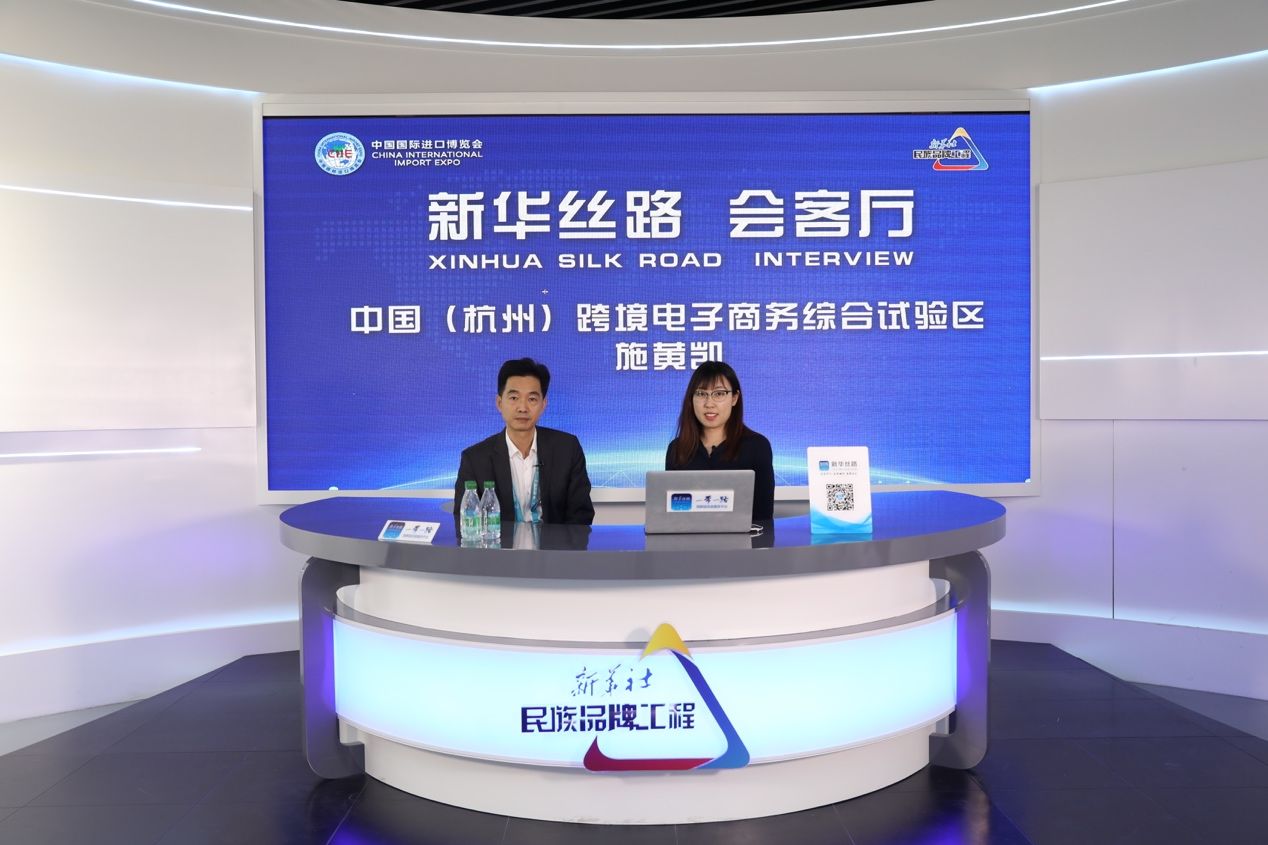- China Hangzhou cross-border e-commerce pilot area strives to promote integration of e-commerce, manufacturing
-
2020-03-02 11:50
Abstract: China(Hangzhou)Cross-Border E-Commerce Comprehensive Pilot Area has carried out a series of measures to promote integration of cross-border e-commerce and the manufacturing industry to further upgrade the industry,according to an official of the pilot area.
SHANGHAI,Nov.26(Xinhua) --China(Hangzhou)Cross-Border E-Commerce Comprehensive Pilot Area has carried out a series of measures to promote integration of cross-border e-commerce and the manufacturing industry to further upgrade the industry,according to an official of the pilot area.
Shi Huangkai,an official of the Hangzhou cross-border e-commerce comprehensive pilot area made the remarks when attending the Xinhua Silk Road Interview during the 2nd China International Import Expo(CIIE).

Photo:Shi Huangkai,an official of the China(Hangzhou)Cross-Border E-Commerce Comprehensive Pilot Area attends the Xinhua Silk Road Interview.
"The CIIE provides an opportunity for high-quality brands to enter the Chinese market,promotes online and offline integration of the e-commerce industry,and offers more cooperation channels for e-commerce platforms,"said Shi.
Since the Hangzhou cross-border e-commerce pilot area was approved to be established by the State Council in 2015,it has been pushing ahead the integrated development of cross-border e-commerce and the manufacturing sector in four aspects,according to Shi.
The first is cooperating with leading e-commerce platforms from home and abroad to facilitate traditional foreigntradeand manufacturing companies conduct customized production,targeted marketing and flat management with the power of e-commerce.
The second is setting up e-commerce training programs with universities to cultivate and provide talents for foreign-trade oriented manufacturers when transforming into manufacturing companies with e-commerce features.
The third is holding trade fairs between cross-border e-commerce sellers and traditional manufacturers to form a smart supply chain.
The last one is optimizing third-partyservices for cross-border e-commerce,such as warehousing and logistics,financing and payment,intellectual property protection,international taxation,etc.

